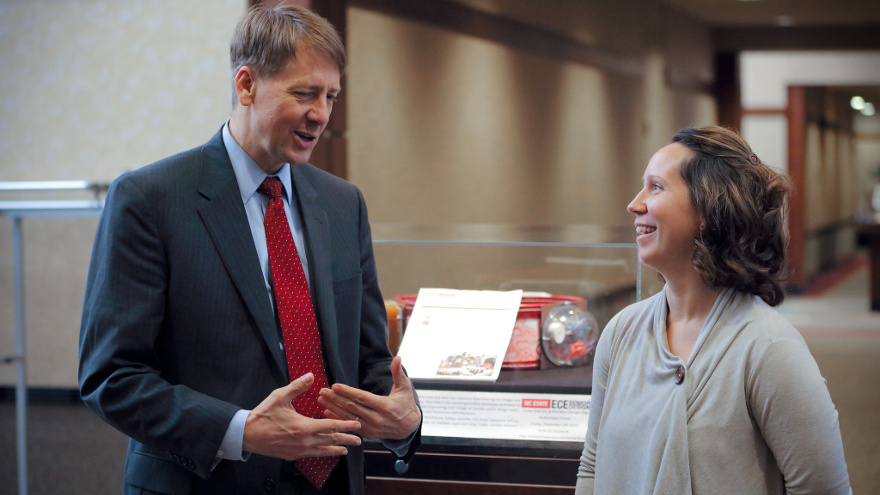Cordray sticks with CFPB message during Labor Day speech in Ohio

CFPB director Richard Cordray, seen here during an event focused on student loans in Raleigh, N.C., back in June, did not share his political aspirations during a speech on Monday at the Cincinnati AFL-CIO Labor Day Picnic. (Photo courtesy of the CFPB)
By subscribing, you agree to receive communications from Auto Remarketing and our partners in accordance with our Privacy Policy. We may share your information with select partners and sponsors who may contact you about their products and services. You may unsubscribe at any time.
CINCINNATI –
If Richard Cordray wanted to make a triumphant announcement that he was running for governor in Ohio, the Consumer Financial Protection Bureau director passed on the opportunity when he gave a speech on Monday during the Cincinnati AFL-CIO Labor Day Picnic.
The prepared remarks Cordray shared didn’t hint at gubernatorial aspirations in the Buckeye State, where he already has been treasurer and attorney general. Instead Cordray focused on what’s been accomplished by the bureau, including $12 billion in restitution to more than 30 million consumers during the past six years.
“We deal with common, everyday products like credit cards, loans for cars and trucks, home mortgages and bank accounts,” Cordray told the gathering of union members. “We help people know before they owe by arming them with information they need to make smart decisions about their money. We put in place protections against predatory practices. We hold companies accountable for following the law, and we come down hard on them when they don’t.
“People from all over the country thank us all the time for getting results, and they often seem surprised to find that we are doing this work on their behalf,” he added.
Before the holiday weekend, lawmakers and industry leaders sought confirmation about whether Cordray would be concentrating his time and effort in Ohio or as the head of the CFPB for which his term runs for another year.
At least from what Cordray said publicly in this city near the Ohio River, it seems he plans to continue to steer the CFPB ship.
Subscribe to Auto Remarketing to stay informed and stay ahead.
By subscribing, you agree to receive communications from Auto Remarketing and our partners in accordance with our Privacy Policy. We may share your information with select partners and sponsors who may contact you about their products and services. You may unsubscribe at any time.
“What I have learned from my time leading the Consumer Bureau is this: Our willingness to stand up for what is right, regardless of the obstacles, can make a real difference,” Cordray said. “If we do not push back on the forces that press people down, we are allowing America’s promises to go unfulfilled. We need to give voice to these concerns, and we need to join together to help each other rekindle the hope, the enthusiasm and the willingness to find and make our own opportunities: to try, to fail, to try again, and to keep picking each other up because we just know that something is out there and we can figure out a way to find it.
“But to do that, we need a system that works for all of us, not just those at the very top,” he went on to say. “We need to be able to see that wherever we start in life, we can advance through our own merit and hard work. We need a marketplace, and a justice system, and other key pieces of our society to operate more effectively and truly reflect the principle that every one of us counts.”


